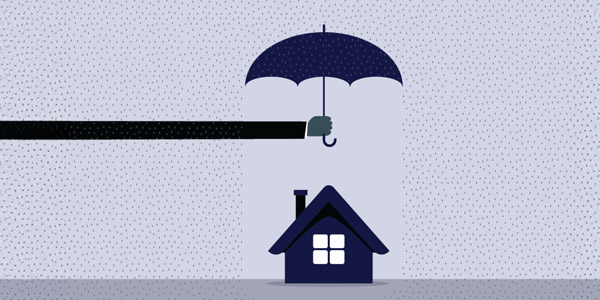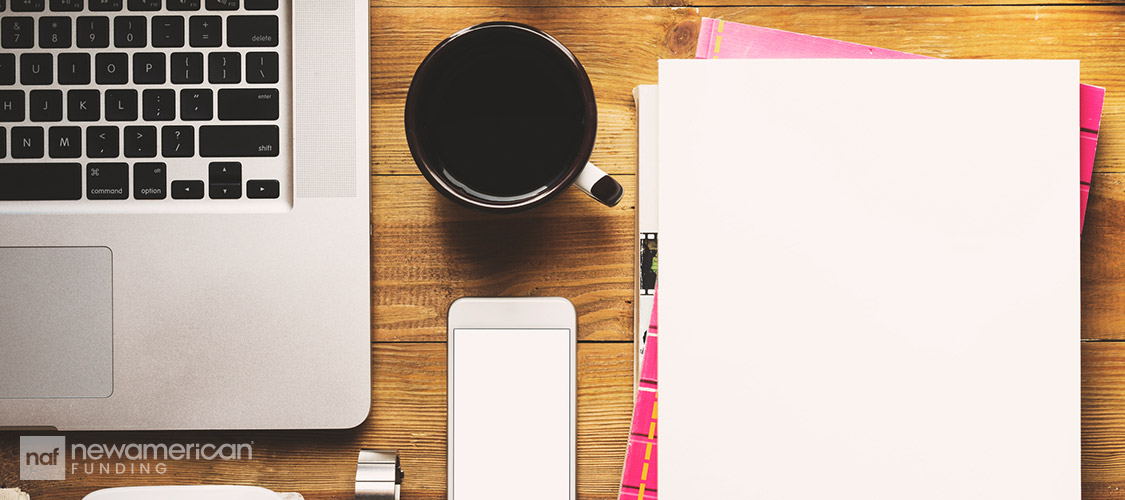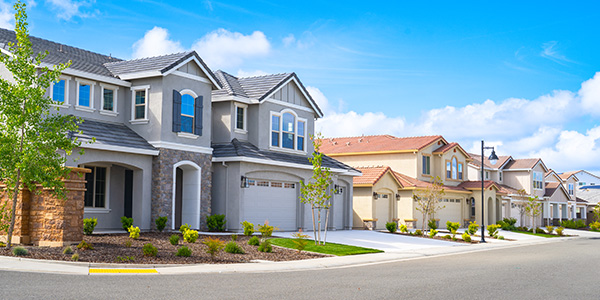Homebuyers
Understanding Mortgage Insurance: A Guide for Homeowners
April 9, 2024
For millions of homebuyers, the path to owning a home involves mortgage insurance payments. Mortgage insurance is a policy that protects a mortgage lender or titleholder if a borrower defaults for some reason. It allows lenders to be more lenient about lending standards because it reduces some of the risk of handing out loans.
However, you should be prepared for slightly higher monthly mortgage payments if you plan to utilize mortgage insurance to get approved for your loan. What is mortgage insurance all about? This article covers the ins and outs of mortgage insurance when buying a home.
Understanding Mortgage Insurance
While consumers are accustomed to purchasing insurance that protects their interests, mortgage insurance works differently. Mortgage insurance protects the lender. If you stop making payments for any reason, mortgage insurance will pay the lender a portion of the principal. However, its ultimate purpose is to make buying a home realistic for someone who may not have a sizable down payment ready to go.
How Mortgage Insurance Fits into the Homebuying Process
Mortgage insurance is generally required when a borrower puts down less than 20% of a home's purchase price at closing. Premiums are usually paid as part of the monthly mortgage total that the borrower owes to the lender. However, some or all of the premium may be paid at closing. Here's a look at the different types of mortgage insurance:
- Private Mortgage Insurance (PMI): PMI is available for Conventional mortgages with down payment requirements below 20%. PMI varies based on loan size, buyer credit score, loan type, and other factors. Borrowers can request for PMI to be phased out once they have 20% equity in a home.
- Mortgage Insurance Premium (MIP): This is required for those who get a Federal Housing Administration (FHA) loan. MIP is for people who take advantage of the lower minimum down payments and relaxed credit requirements of FHA loans. Most FHA loans require both upfront MIP and monthly premium payments. Buyers who chose this option can expect to put down 1.75% of the loan total for MIP at closing. For buyers putting down less than 10% for a down payment at closing, MIP is paid in monthly installments for a loan's full duration.
- USDA Guarantee Fee: While not technically mortgage insurance, USDA home loans require an upfront guarantee fee that's paid both at closing and each year during the life of the loan. While the upfront fee is 1% of the loan total, the annual fee represents 0.35% of the loan balance divided into monthly installments that are paid with the mortgage.
- VA Funding Fee: Veterans Affairs (VA) mortgages do not require mortgage insurance. However, borrowers do pay funding fees that can range from 1.25% to 3.3% of a loan amount.
How Mortgage Insurance Works
While mortgage insurance is pretty straightforward, there can be some differences based on loan type and repayment schedule. It's important to read the terms of a mortgage insurance policy carefully to be able to anticipate the extra costs that will be added to your total mortgage cost. It's also important to know about the different payment schedules that can apply for mortgage insurance.
How Much is Mortgage Insurance?
There's no flat rate for mortgage insurance. Mortgage insurance typically costs 0.5% to 2% of your loan amount per year. However, costs can range anywhere from 0.2% to 5% of your original mortgage amount.
What is PMI on a Mortgage?
The two types of PMI are borrower-paid PMI and lender-paid PMI. With borrower-paid PMI (BMPMI), your premium costs will be paid with your monthly mortgage payment. There won't be any need to do the math each month because your lender will simply add the total to your monthly bill. This is the most common way that PMI is handled.
If your mortgage has lender-paid PMI (LMPI), your lender pays all of your insurance premiums on your behalf in a single lump sum at closing. In return, you'll pay the sum back in the form of a higher interest rate on your mortgage. Lenders occasionally offer the option for the borrower to pay the full lump sum owed for PMI at closing to avoid a higher interest rate.
Can the Department of Housing and Urban Development Help with Mortgage Insurance?
As part of HUD, the FHA administers mortgage insurance programs that are designed to help low- and moderate-income borrowers become homeowners. FHA mortgage insurance allows lenders to lend to borrowers who may not be able to meet traditional underwriting requirements.
What Are the Mortgage Insurance Requirements for Conventional Loans?
Most people assume that you need to be able to put down 20% to qualify for a Conventional mortgage. In reality, many lenders will allow qualifying borrowers to put down as little as 3% for a down payment. However, your lender will require you to pay for PMI for any down payment that's less than 20%.
Mortgage Insurance Requirements for FHA Loans
Unlike mortgage insurance with Conventional loans, there is no down payment threshold to avoid MI with FHA loans. All borrowers with FHA loans are required to pay a mortgage insurance premium (MIP). Insurance fees are split between a one-time fee paid at closing called UFMIP and ongoing monthly insurance payments.
How Credit Score Affects Mortgage Insurance Costs
A borrower's credit score plays a big role in how much they'll pay for mortgage insurance. Like lenders, mortgage insurance companies base premium rates on credit scores. That's because these companies base a borrower's likelihood of defaulting on their financial track record.
Understanding Guarantee Fees: How Are They Different from Mortgage Insurance?
As covered earlier, USDA and VA loans come with guarantee fees instead of requirements for mortgage insurance. When assisting with these types of loans, the government guarantees the payment of principal and interest. These guarantees are funded by borrower-side fees that are designed to cover losses in the event of default.
Understanding Your Requirement to Buy Mortgage Insurance
While not every mortgage requires mortgage insurance, most borrowers today do pay for mortgage insurance. The only situations where you won't have to deal with mortgage insurance are when you're obtaining a Conventional mortgage with 20% down, a USDA loan, or a VA loan. All Conventional mortgages with less than 20% down require PMI. All FHA mortgages with down payments of any size require MIP.
Benefits and Drawbacks of Mortgage Insurance
Overall, mortgage insurance is looked at as a positive by borrowers because it allows lenders to ease their lending requirements. However, it does increase the cost of buying a home. That's why some buyers strive to be able to put down 20% on a Conventional mortgage before beginning the homeownership journey.
Pros of mortgage insurance for borrowers:
- Let’s a buyer get into a home with a low down payment
- Allows a borrower to keep more cash aside for home improvements and renovations instead of using their savings for a down payment
- Can allow borrowers to qualify for mortgages before rates change
- This can put a buyer in a position to make an offer when the right home comes on the market instead of waiting for a bigger down payment
- PMI can be canceled when you've paid off 20% of a home
Cons of mortgage insurance for borrowers:
- Doesn't offer any protection for the homeowner
- Monthly mortgage payments are higher
- Homeowners need to go through the process of requesting PMI removal after hitting a loan-to-value ratio below 80%
A Closer Look at Private Mortgage Insurance
PMI is a type of mortgage insurance your lender will require if you choose to take out a Conventional loan with a down payment that's less than 20% of the home's purchase price. What makes PMI different from other types of mortgage insurance is that it's technically the only type of mortgage insurance that you can avoid. Some factors that influence PMI premiums include:
- Borrower credit score
- Borrower credit history
- Loan-to-value (LTV) ratio
- Borrower debt-to-income ratio (DTI)
- Home type
- Single versus joint borrower
- Fixed versus adjustable-rate mortgage
While PMI can be canceled once you pay off 20% of your mortgage, your lender won't automatically remove PMI from your bill when you get there. As a borrower, you'll need to request that your loan servicer cancel PMI on the date that a loan's principal balance is scheduled to fall below 80% of the original value. Some lenders require new home appraisals before agreeing to cancel PMI. As long as you're current with payments, lenders will automatically drop PMI once you reach 22% equity using your original loan amortization schedule.
Frequently Asked Questions
How long do I pay mortgage insurance?
For Conventional loans, PMI can go away after paying off 20% of your mortgage. FHA MIP typically lasts 11 years. Details can vary based on loan terms and mortgage terms.
How do I get rid of FHA mortgage insurance?
In order to remove FHA MIP, you'll need to meet specific criteria. Borrowers who put down 10% or more can typically get MIP canceled after 11 years. Borrowers with down payments of less than 10% will continue to pay MIP for the life of the mortgage. Refinancing can also be a way to remove MIP. Borrowers with origination dates prior to December 2000 cannot remove FHA mortgage insurance premiums.
How do I remove private mortgage insurance?
If you've paid 20% of your mortgage, simply write a letter to your servicer requesting to have PMI removed.
Can a larger down payment eliminate mortgage insurance?
Yes, putting down 20% on a Conventional mortgage eliminates the need for mortgage insurance. However, all FHA loans require a form of mortgage insurance called MIP.








 Smart Moves Start Here.
Smart Moves Start Here.